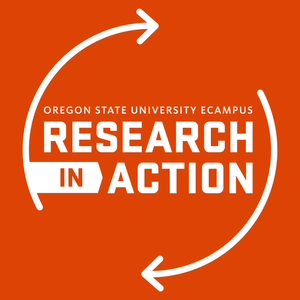
Fairy tourism: negotiating the production of fantasy geographies and magical storyscapes
03/29/24 • 21 min
https://www.tandfonline.com/doi/full/10.1080/14616688.2023.2290662
Abstract
This research brings an original anthropological approach to the understanding of how the tourism industry negotiates the construction of elusive, magical geographies. Fairy tourism or ‘fairy hunting’ has been acknowledged since the nineteenth century, but is largely overlooked in tourism literature, despite increasing exposure to fairy motifs through multi-media platforms, including films, gaming, and literature. This study examines fairy festivals using a theoretical framework based on the novel concept of ‘liminal affective technologies,’ (LATS), that are designed to enhance transformative potentiality. An Interpretative Phenomenological Analysis method is used to analyse how fairy festival producers generate approximations of Fairyland. To create fairyscapes, their organisers devise LATs, such as situating the events in places that are bucolic, mystical and connected to local folklore, and staging workshops, music, and activities, such as wish-making, using fairy-themed motifs, to reinforce the magical narrative. Yet several festival producers ‘toned down’ the troublesome or Pagan elements of the fairyscape, explaining the surreality of their events to visitors as dreamscapes.
Hosted on Acast. See acast.com/privacy for more information.
https://www.tandfonline.com/doi/full/10.1080/14616688.2023.2290662
Abstract
This research brings an original anthropological approach to the understanding of how the tourism industry negotiates the construction of elusive, magical geographies. Fairy tourism or ‘fairy hunting’ has been acknowledged since the nineteenth century, but is largely overlooked in tourism literature, despite increasing exposure to fairy motifs through multi-media platforms, including films, gaming, and literature. This study examines fairy festivals using a theoretical framework based on the novel concept of ‘liminal affective technologies,’ (LATS), that are designed to enhance transformative potentiality. An Interpretative Phenomenological Analysis method is used to analyse how fairy festival producers generate approximations of Fairyland. To create fairyscapes, their organisers devise LATs, such as situating the events in places that are bucolic, mystical and connected to local folklore, and staging workshops, music, and activities, such as wish-making, using fairy-themed motifs, to reinforce the magical narrative. Yet several festival producers ‘toned down’ the troublesome or Pagan elements of the fairyscape, explaining the surreality of their events to visitors as dreamscapes.
Hosted on Acast. See acast.com/privacy for more information.
Previous Episode

Valuing surfing ecosystems: an environmental economics and natural resources management perspective
Abstract
Surfing ecosystems—surf breaks and their surrounding areas—can provide multifaceted benefits, including support for tourism industries, personal and social wellbeing and shoreline protection. Previous research has predominantly concentrated on quantifying direct expenditures, sidelining non-market values, and failing to consider the interactions between multiple ecosystem components. To address these gaps, this paper provides a review of key principles of environmental economics and natural resource management in relation to surfing ecosystems. We examine how the value of surfing ecosystems can affect (and be affected by) factors related to environmental sustainability, tourism demands and economic development. We propose a novel framework for characterizing the values of surfing ecosystems and conducting economic assessments, based on six main features: (i) surf breaks, (ii) surfing resources, (iii) surfing ecosystems, (iv) economic values, (v) economic valuation, (vi) equity and sustainability. This structured approach may serve to improve decision-making processes concerning environmental changes that impact surfing ecosystems, including tourism management plans and environmental regulations. Our study aligns with broader global initiatives to better account for ocean-based values and support sustainable, nature-based tourism.
Hosted on Acast. See acast.com/privacy for more information.
Next Episode

Sense of community and well-being in diaspora festivals
https://www.tandfonline.com/doi/full/10.1080/14616688.2023.2280690
Abstract
This study was prompted by a lack of empirical research addressing the overlap between sense of community and eudemonic well-being components, the limited attention paid to immigrant perspectives in well-being studies, and the presence of under-researched type of festival and population. To address these gaps, this study aimed to identify the dimensions of sense of community and the well-being outcomes of diaspora festivals. The study targeted an understudied group and its festivals: those of the Ethiopian diaspora community in the United States. Guided by the constructivist grounded theory method, the study obtained data through guided interviews, and simultaneously analyzed them to construct six domains of a sense of community applicable to diaspora festivals. The six elements of a sense of community were a sense of belonging, a sense of togetherness, serving the community, recognition, social support, and connection with diaspora, and comprised at least one eudemonic well-being component. Engagement, positive relationships, finding meaning in life, and a sense of achievement, were inherent in more than three of the six domains of a sense of community. Other well-being elements such as physical health and spirituality were evident in one domain. In conclusion, this study offers theoretical contributions to festival tourism, community psychology, human/tourism geography, and positive psychology research in multiple ways.
Hosted on Acast. See acast.com/privacy for more information.
If you like this episode you’ll love
Episode Comments
Generate a badge
Get a badge for your website that links back to this episode
<a href="https://goodpods.com/podcasts/tourism-geographies-podcast-426667/fairy-tourism-negotiating-the-production-of-fantasy-geographies-and-ma-58739557"> <img src="https://storage.googleapis.com/goodpods-images-bucket/badges/generic-badge-1.svg" alt="listen to fairy tourism: negotiating the production of fantasy geographies and magical storyscapes on goodpods" style="width: 225px" /> </a>
Copy




